There's some big games that came out last fall that I wanted to play and didn't get a chance to. Still, there's a lot of great stuff on this list, including things you don't need to be a hardcore gamer to get into.
Best of 2015
10. Broken Age (Multi)
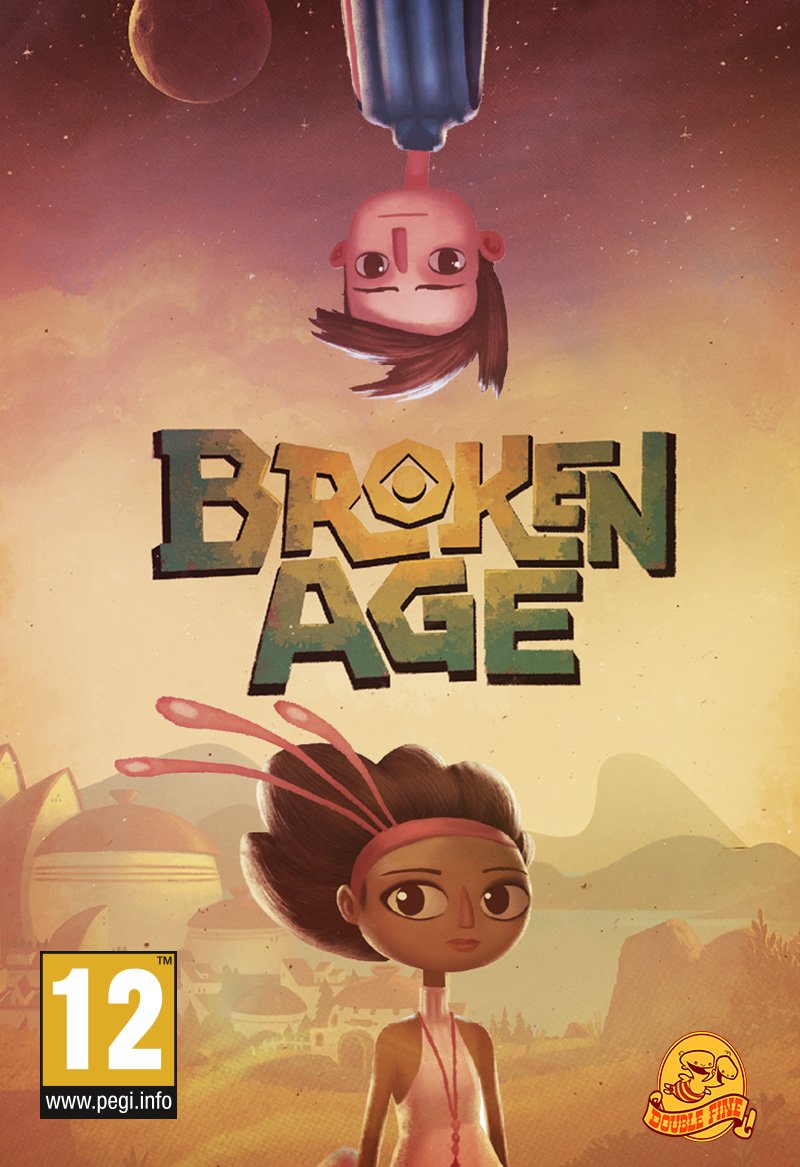
After all the controversy over its development (for the record, I think Tim Schafer probably mismanaged the scope of the project after the Kickstarter greatly exceeded its initial funding goal, but it would have been worse if he kept it the same and pocketed the extra money), Broken Age ended up being what was promised: a traditional point and click adventure game. The puzzles in the first half were maybe a bit too simple, and the ones in the second half probably skewed too far the other way, but what people really remember about these games are the characters and the world they inhabit, and I think the game succeeded there. It's funny and sweet, and I think I got what we paid for.
9. Her Story (Multi)
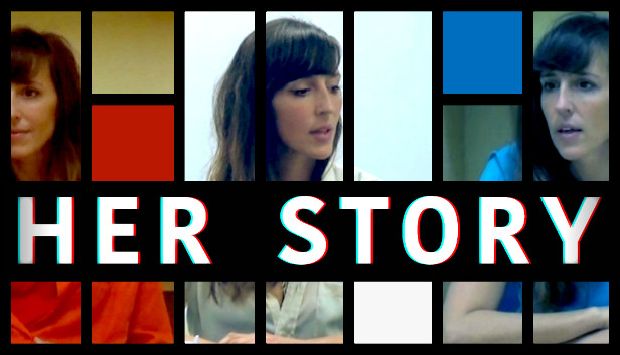
Her Story is both very different from other video games and very much a video game. In the game, you have access to a database of videos taken from a series of interviews of one woman from a murder investigation in 1994, split into chunks of anywhere from 2 seconds to a couple minutes, and viewable by searching for words spoken in the clips, with only the first five chronologically available at one time. Ignoring that the system only makes sense as a way to obscure important information, the game effectively gives you the experience of investigating the murder yourself, watching the videos, picking up on key phrases, and finding a way to get to the meaty truths hidden in the final interview. The actual plot can be interpreted multiple ways, all of which are wackier than you might initially suspect, but the feeling of piecing things together is unique and rewarding. I played it by myself, but I can see it being fun with a group as well.
8. The Beginner's Guide (PC)

This works very well as a companion to Davey Wreden's first game, The Stanley Parable. While that was about playing games, Guide is about making them, although it's broad enough to apply to any kind of creative endeavor. It lacks the humor and playfulness of Parable, taking a more introspective approach, but it still keeps you intrigued for its duration as it plays with your expectations and dives into the insecurities and worries that a lot of people deal with. If you hate games where you do nothing but walk around, you'll want to avoid it, but I think a lot of people who don't play many games could enjoy it more than they'd expect.
7. Lara Croft Go (Multi)

Last year Square Enix put out Hitman Go, a clever phone game that translated the core concepts of the Hitman series into a turn-based game on a grid. Lara Croft Go does the same thing with Tomb Raider, but to much greater effect. The puzzles (until the bonus levels after the normal ending) are in the perfect range between tough enough to make you feel smart and easy enough that you never get stumped for too long. The visual style is neat, and the hidden objects you can find to unlock new costumes are a nice extra brain tickler to keep you focused. I played it enough to where I was seeing the game all around me when I wasn't playing it, which always annoys me, but it's hard to get mad at the game for that.
6. Axiom Verge (Multi)

I played Super Metroid last year, finally learning why it's always brought up in best-game-of-all-time discussions and seeing how it influenced so many exploration-focused action platformers over the years. Axiom Verge is very obviously heavily influenced by that game, but luckily avoids copying it too heavily, coming up with its own ideas for weapons and tools so the gameplay at least always feels distinct. The retro-styled visuals and music compliment each other nicely, and while I didn't get a whole lot out of the sci-fi story, it did a decent job of tying the whole experience together into a cohesive whole. DEMON, ATHETOS SAY, KILL
5. Rise of the Tomb Raider (XBO)
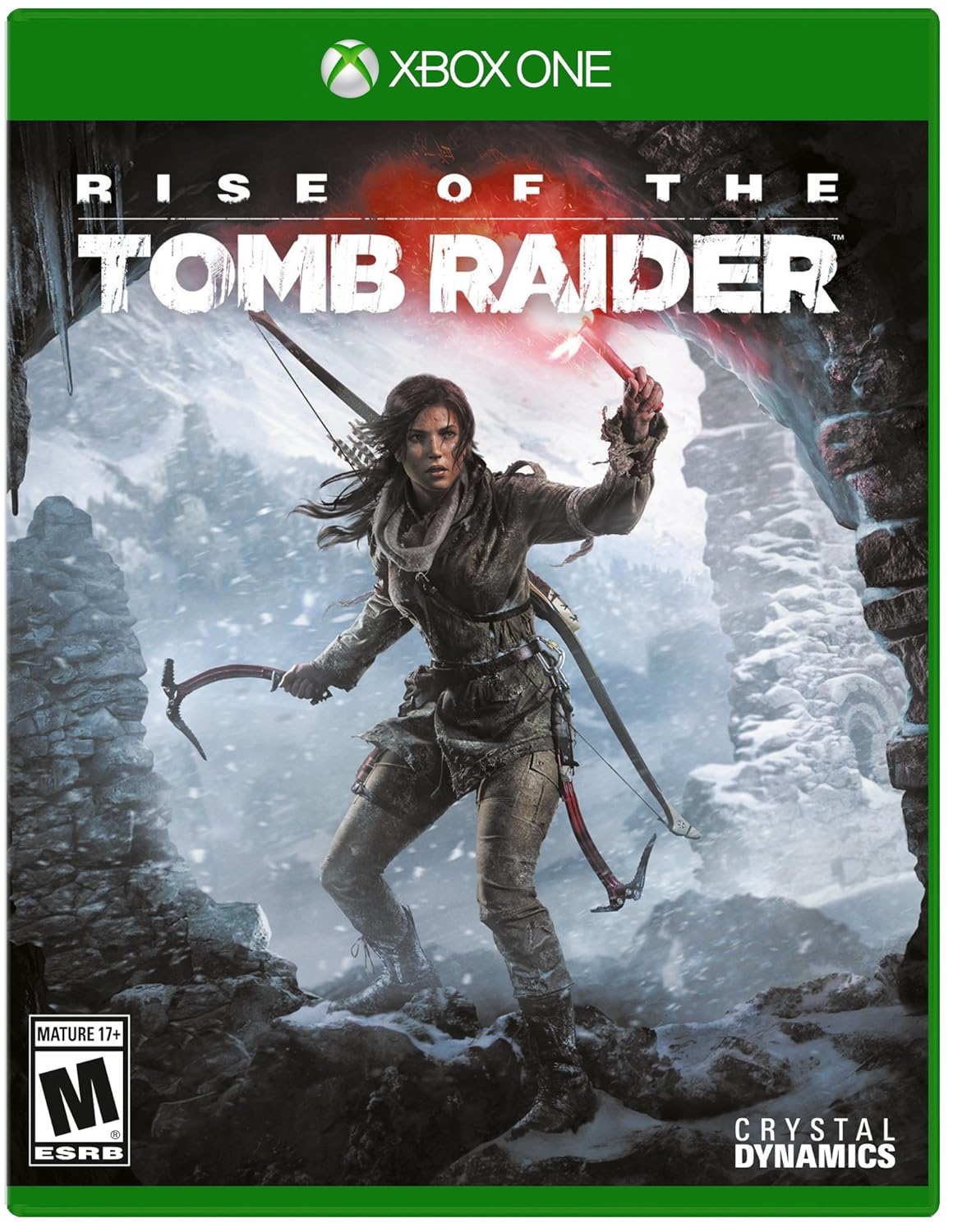
I haven't actually finished this game yet, but I feel confident in placing it here. As a follow-up to the reboot from a couple years ago, it expands on what people really liked, the exploration and survival aspects, and pulls back a bit on the combat, which I actually enjoyed, but I always welcome the shift in focus. The story works well enough to pull you into its world and justify why Lara puts herself into another dangerous situation, and the structure of the game lets you play it at your own place. I'm really enjoying finding and clearing the optional tombs, upgrading my gear, and finding all the little bits of history scattered around. Also the game is extremely gorgeous, which is always nice.
4. Undertale (PC)

Undertale is an old-school RPG for the Tumblr crowd, and if that's a turn-off for you, I understand. I still thought it was one of the best narrative experiences in games last year. The gameplay is pretty basic, as you solve simple puzzles and engage in a combat system which never gets terribly deep but lets you talk with your foes and let them go instead of just whacking them to death. The game parts are functional enough to get you to the story, where Undertale shines. It's a genuinely funny game, and it uses humor to get you to like its characters. It then uses your affection for the characters to build to a couple conclusions which are much more emotionally effective than they would be otherwise. I recommend playing through without killing anyone, and then loading your save and getting the pacifist ending, as both conclusions have their own things to say, their own surprises, and their own memorable moments. If you want to go back for the genocide ending after that, that's on you.
3. Metal Gear Solid V: The Phantom Pain (Multi)

As a Metal Gear game in general, and specifically as Hideo Kojima's farewell to the series he created, The Phantom Pain is a big disappointment in several ways. Luckily, actually playing the game itself is an incredible experience. Metal Gear has long had a reputation for being idiosyncratic and obscure, but by putting you in an open world, pulling back on the familiar distractions, and honing everything to near-perfection, Kojima and his team managed to craft perhaps the finest-playing stealth game ever made. The way all the systems work together with your different abilities and the complex, smart-but-not-too-smart AI of the enemies creates an endless supply of unique, memorable moments, whether you pull off the perfect, unseen approach and infiltration of an enemy base, or screw up and have to Rambo your way through. The different buddy characters provide an added layer of strategy and possibility, and the plethora of side-ops and optional objectives mean there's as much game as you want there to be. I could talk more about my complaints, but I'd rather focus on the positive: playing The Phantom Pain is awesome.
2. Bloodborne (PS4)
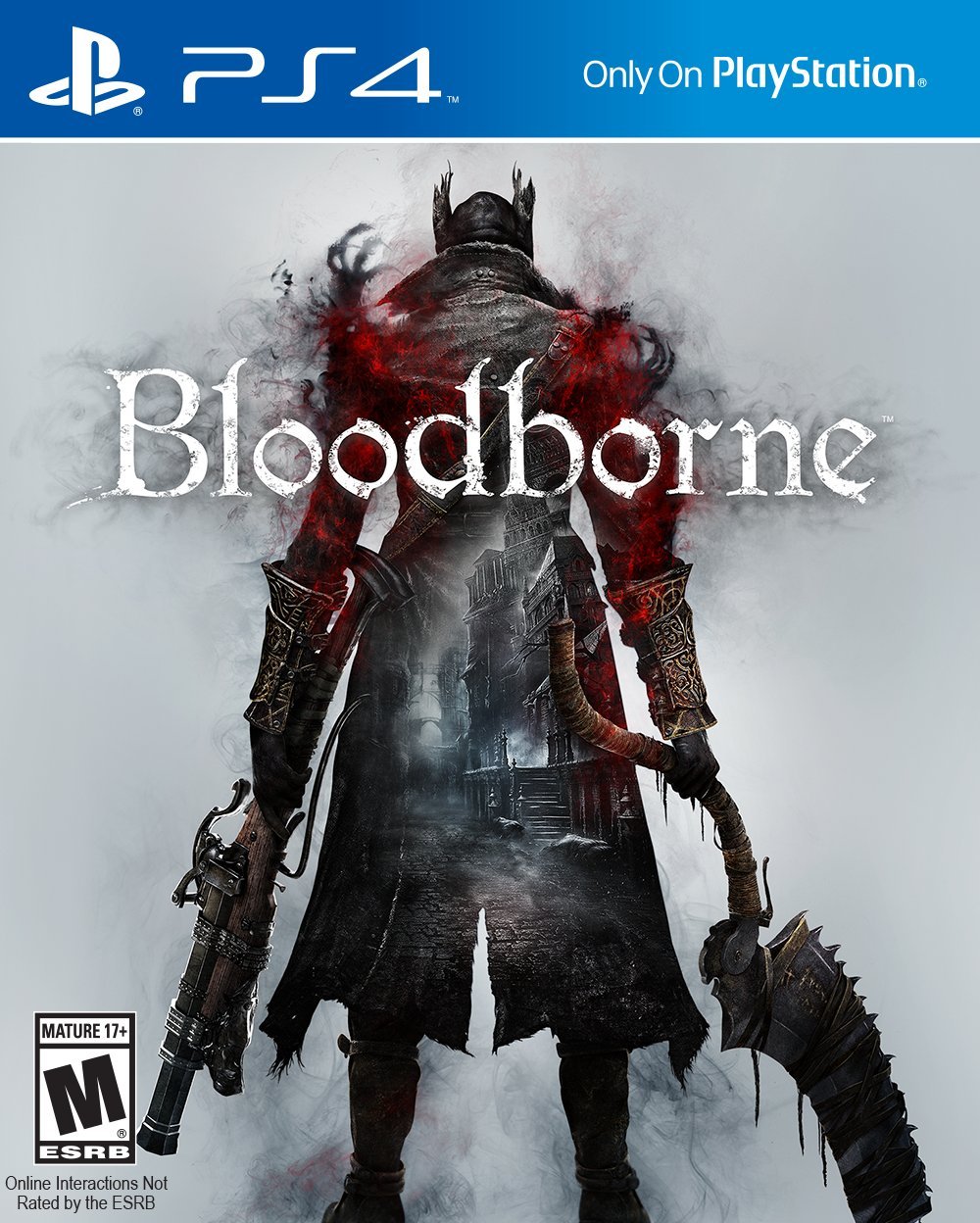
Compared to the Souls games, Bloodborne clearly has a more narrow focus. Shields aren't really a viable option, and neither are projectiles or magic. Having such a specific aesthetic, there isn't exactly a ton of environmental variation. If you love the Souls games because of the variety of possible character builds and far-ranging level design, I can understand disappointment in Bloodborne. If you focus on what Bloodborne is rather than what it isn't though, you can see how brilliant it is. The art direction is great, creating an incredible atmosphere, and finding enough possibilities within the space of "horrific Victorian hellscape" that you can tell all the different areas and their purposes within the world apart. The combat is fantastic, with a fun variety of exotic weapons, tough enemies, and a fast pace that keeps you on your toes and your heart racing. The story is vague but intriguing, with plenty of images you'll remember even if you don't exactly understand what they mean. As a variation on the classic Souls experience as I understand it, I think it's complimentary in a way that only makes the franchise richer.
1. The Witcher 3: Wild Hunt (Multi)

With The Witcher 3, I think CD Projekt Red's results finally met their ambitions. Taking place in a massive open world, there's more love and attention to detail per square mile than I think most games with similar scales even begin to approach. They've been building their setting and characters for three games, and the payoff seems pretty clear, as multiple storylines come to fruition and ultimately, satisfying conclusions. Much has been said about how good the side quests are, and I think that's extremely important. In a lot of games you can tell where the focus and attention went in the main story, and the rest of the game is just filler to make you think the experience was huge and meaty. But when every side job you find is at least fleshed out enough to fit your understanding of the world, and sometimes is as interesting as anything you'd see on the critical path in another game, you feel like the whole is greater than the sum of its parts. People have complaints about the combat, but I had enough fun with it to carry me through 90 of the most enjoyable hours I spent with games in 2015.
Delayed Entry
This is the best game that wasn't released in 2015 but I didn't play until then.
Dark Souls (Multi)
Months of prodding from a friend finally got me to buckle down and play Dark Souls, a game I was sure was great but that I would struggle to like. That turned out to not really be the case, as the solid-as-a-rock combat system, helpful online community, and wonderful, interconnected level design helped me get over the humps of significant difficulty, obscure systems, and the occasional loss of several thousand souls. There were a few many sub-par areas for me to praise it as truly one of the best games ever made, but I can certainly see why others feel that way. For me, being merely great ain't half bad.
Monday, January 11, 2016
Best Games of 2015
Monday, January 13, 2014
Best Games of 2013
With both the Playstation 4 and the Xbox One releasing last November, 2013 sort of marked the end of an era, although you wouldn't notice from the quality of the games. There was a nice mix of excellent triple AAA titles and innovative independent releases that made the year a fun and exciting experience the whole way through. I know it was a great year because there were so many really good games in great franchises that didn't even make the list.
Best of 2013
10. The Stanley Parable (PC)
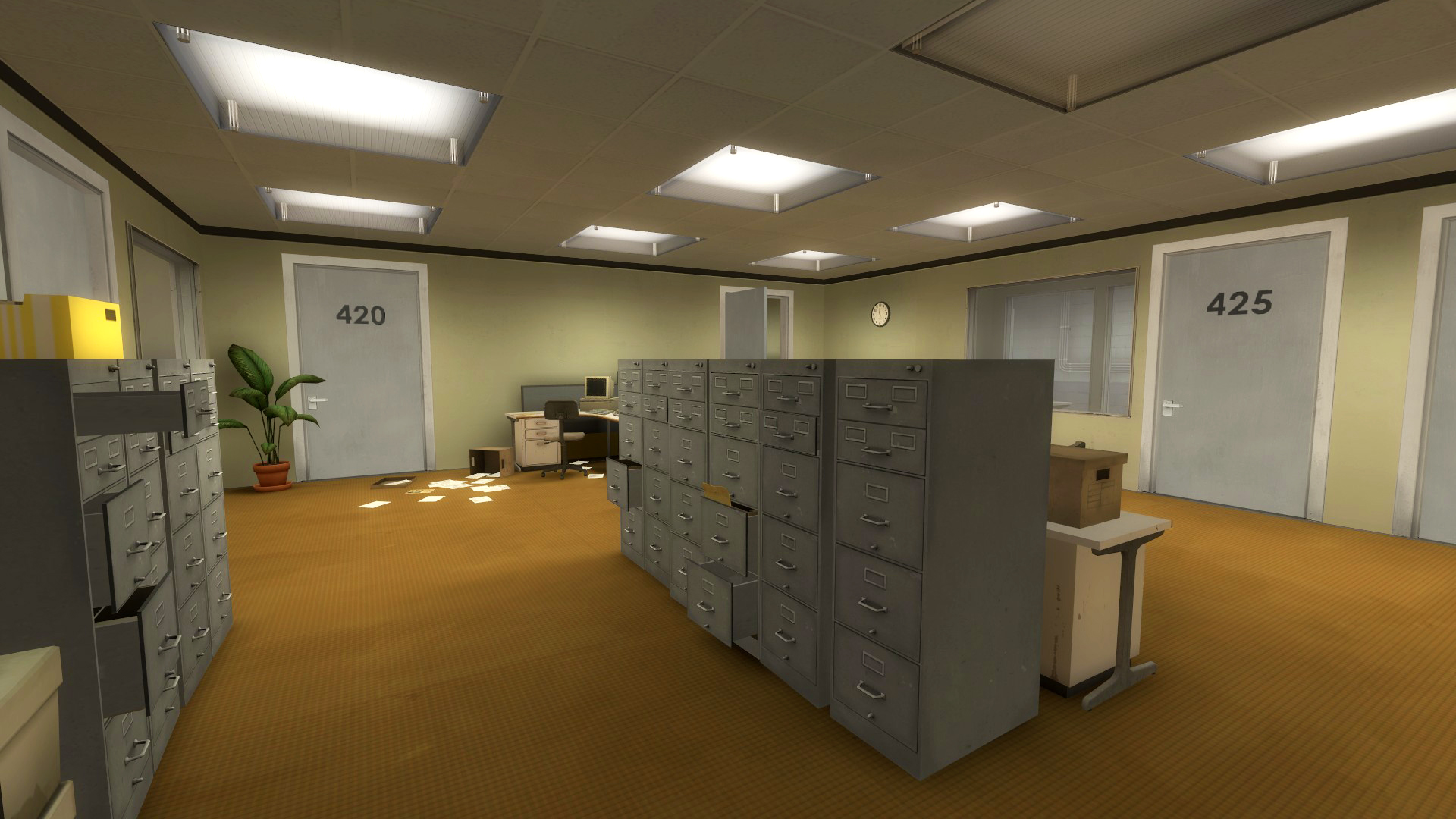
The Stanley Parable was originally a free Source engine mod, but in its conversation to full product it was completely overhauled and remade into what it is now. What it is now is a bit harder to describe. You play as (or are) Stanley, an office worker who one day finds himself alone in the building. A narrator describes your actions before you do them, and you can follow all of his directions to quickly reach an easy yet unsatisfying conclusion. But the real meat of the game is in not doing what you're told. There are tons of ways to disobey the narrator hounding your every move, and they usually result in something interesting, be it a new place you can go, a new insight into game design, or just a funny rant. The game's mix of playing with and subverting expectations while commenting on the nature of choice and interactivity in games is never boring, and the sense of humor keeps it light. You'll definitely understand what the game is doing better if you have a greater than average understanding of gaming history and culture, but anyone can pick it up and at least get a few laughs.
9. Saints Row IV (Multi)

Saints Row: The Third is the artistic pinnacle of the Saints Row series, as weird as it is to use the word "artistic" in that context. In comparison, IV sort of feels like a bloated expansion pack or downloadable add-on, taking place in the same city and completely screwing with the series' framework of open world crime game by turning you into a super hero. In case you don't know, the game's basic premise involves (1) the gang's boss becoming President of the United States in the opening sequence, followed by (2) aliens invading Earth, which results in your capture and insertion into (3) a computer simulation of the city, which you are able to hack in order to essentially (4) gain a variety of super powers. It's nuts, in a series which is known for redefining what nuts actually means in video games. It's also incredibly fun to play, which is the key. I like the other Saints games I've played, but for the most part what you're actually doing is driving and shooting. In Saints Row IV you're running at hyper speed, leaping many stories at once, and basically breaking the world for your own amusement. It's just about as pure as enjoyment can be in the medium. As a bonus, they still have a great handle on the characters, and they're still a lot of fun to hang out with.
8. Super Mario 3D World (Wii U)
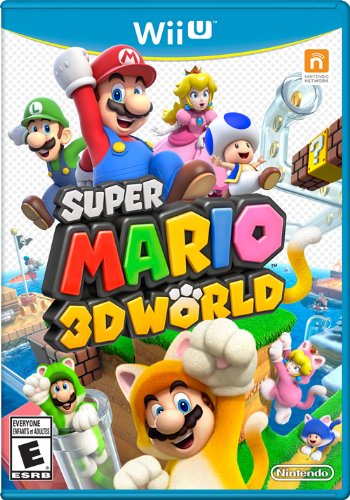
Along with a couple other releases, Super Mario 3D World justifies owning a Wii U, even if the system's future for anything resembling competent third party support looks bleak. It expands on the core gameplay of Super Mario 3D Land, which mixed elements of both 2D and 3D Mario games into a slick and satisfying experience, adds 4 play support and HD graphics, and basically taps the basic mechanics for as much action as they can handle. It's not the greatest Mario game ever - having to support multiple players of varying skill inherently limits the potential of the game design. But it's still really fun to play, even alone, though with friends or family is certainly preferable. It's amazing how this series manages to still be exciting so many years later with the same core ideas.
7. Tomb Raider (Multi)
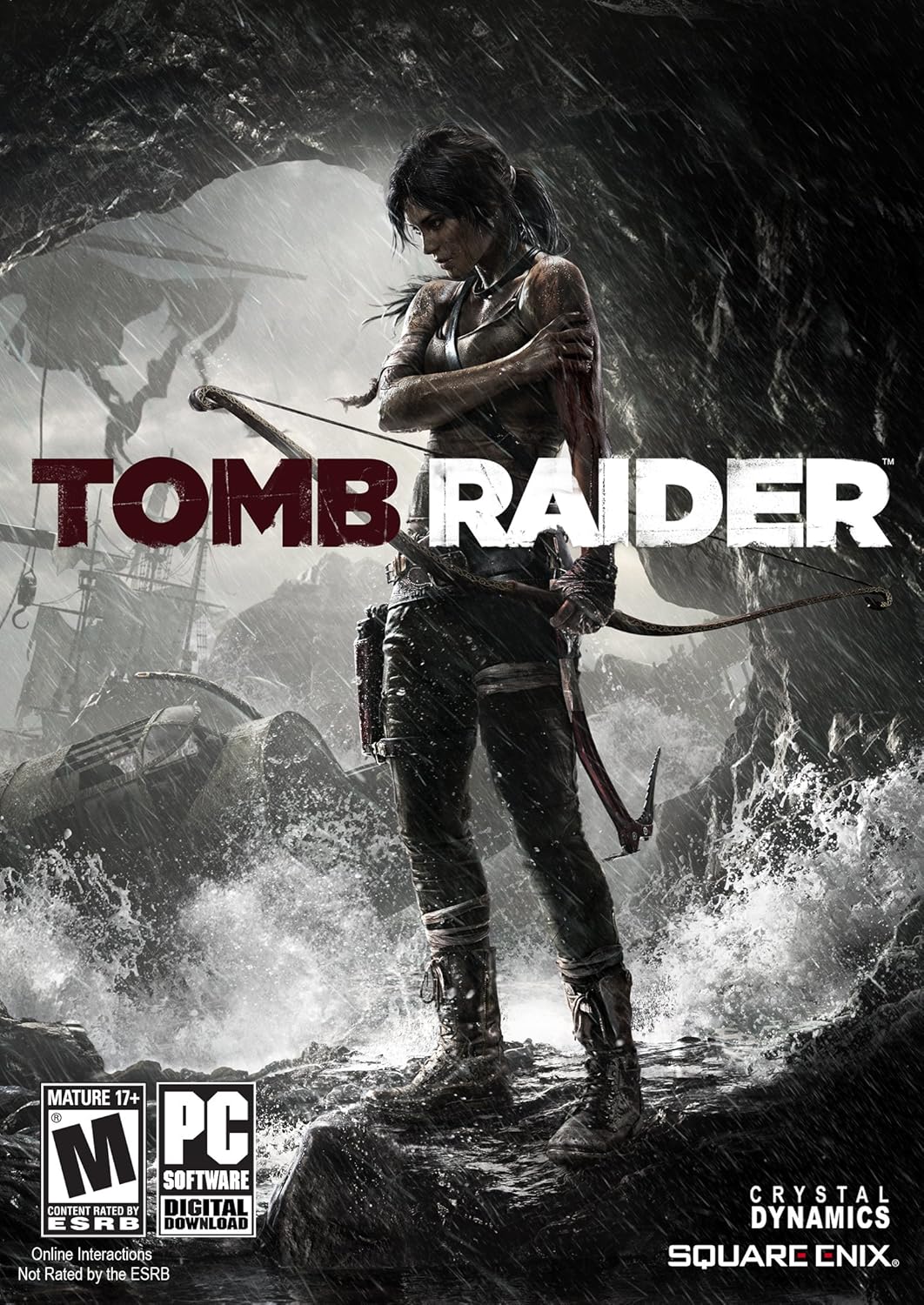
The cycle of innovation and imitation in games can be a pretty funny thing. When Uncharted: Drake's Fortune came out, featuring gunplay, climbing through exotic environments, and solving puzzles in ancient tombs, it was hard to miss the influence from the Tomb Raider series. And now with this new Tomb Raider featuring a more down-to-earth take on its protagonist, cover-based shooting, and a focus on quick traversal over thoughtful rumination on your surroundings, it's hard to miss the influence coming from the other direction. But Tomb Raider's isn't quite an Uncharted clone, having as it does a greater focus on survival, backtracking, and an essential desperation that goes a long way to define it. I wouldn't say either approach is really better, and I'm glad we're getting multiple takes on a central concept that is just so darn appealing. The new Tomb Raider still feels like Tomb Raider while managing to stay modern, and I find it hard to say it's not the most approachable and well-executed game in the series.
6. Grand Theft Auto V (Multi)
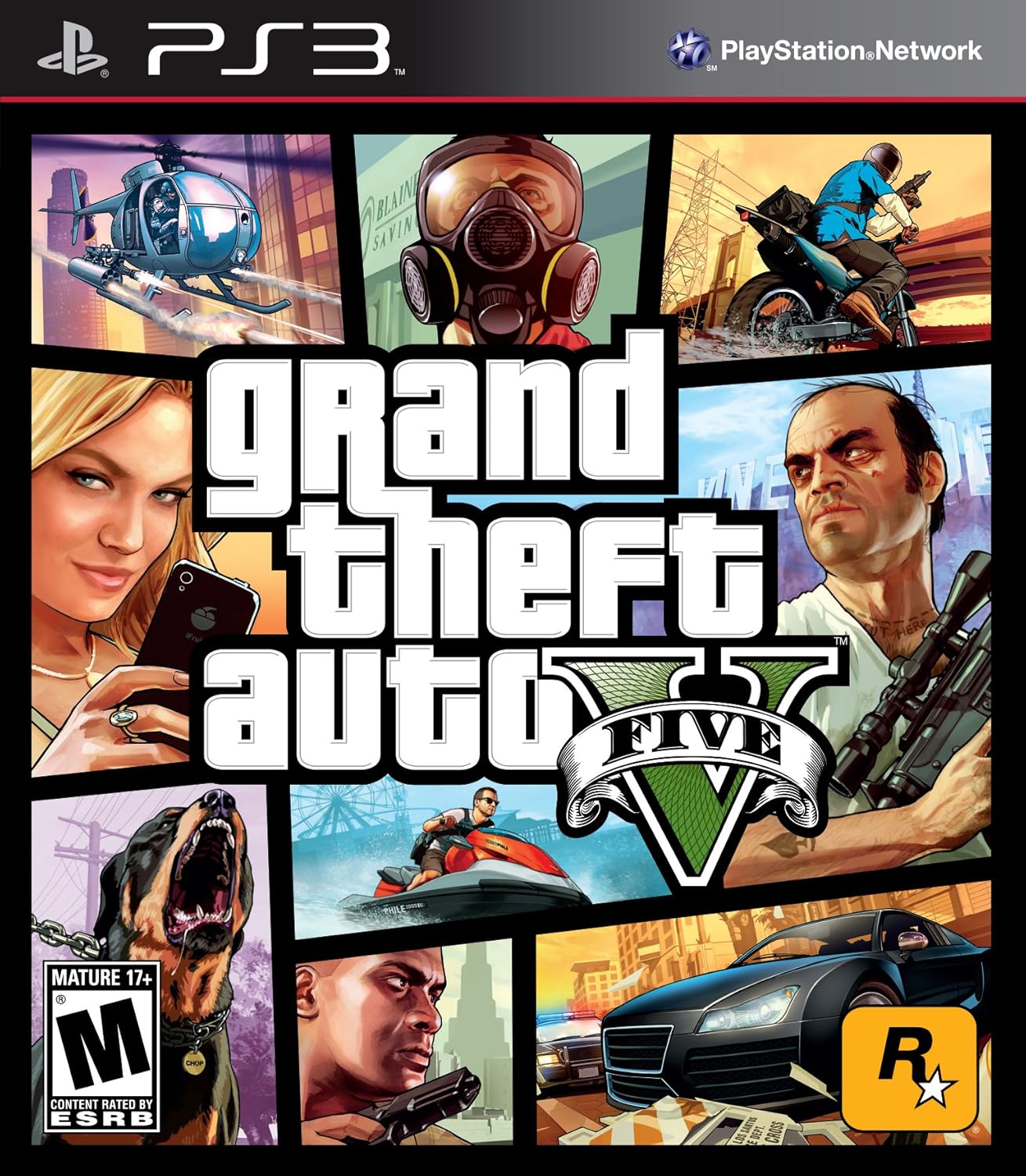
Grand Theft Auto V is the most fun I've had with the series in nine years. In many ways, the game has problems, from its questionable ethics to some weird design snags that other open world games have already solved to a plot that goes a lot of places that it probably doesn't need to. It's kind of a mess, really. But San Andreas is one of the most fully realized worlds I've ever seen in a video game, from its picturesque winding mountain roads to its gaudy downtown storefronts. It really feels like a huge place. And it's honestly a fun place to hang around in. The main gameplay focuses on driving to different places to shoot different people from behind cover, and in that way it's not much different from the last game. But there's a lot more big moments this time around that you remember for months afterward, and it all handles a little better, and the game's tone matches its content with less confusion. And the heists... well, the heists are awesome. I only wish there were more.
5. Brothers: A Tale of Two Sons (Multi)

People like to make fun of the story in games a lot. And a lot of times they're right. But there are certain things that games can do with storytelling that just aren't possible in film, novels, or any other medium. Brothers is a prime example of that. In it, you control two brothers at once, each hand controlling one or the other. It may sound like that gets confusing or frustrating, and it does from time to time. But for the most part it's manageable. At least enough to get you through the few hours it takes to complete the story. During that time it's a solid puzzle game, with clever and intuitive solutions and some satisfying temporary mechanics. The game's real strength though is the story, which is touching, unforgettable, and much, much more effective because it's a video game. Play it and you'll see why.
4. Bioshock Infinite (Multi)
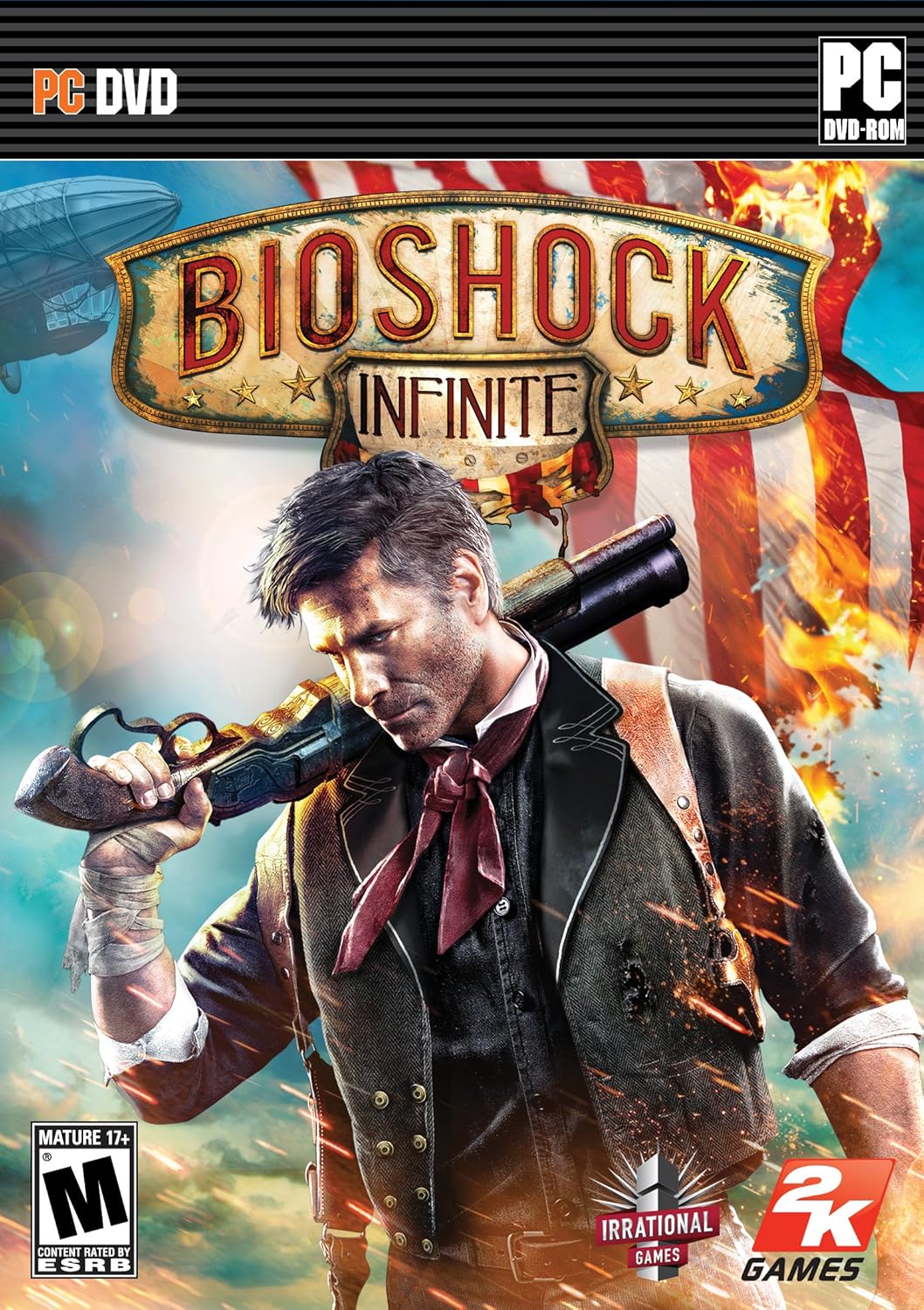
I was honestly surprised by the tons of criticism this game received starting immediately after and lasting for a long time following its release. The reactions are strong and generally understandable, but I have a hard time agreeing with them. I think people wanted things from Infinite that it wasn't prepared to give them. It has a lot of subjects it touches on without fully exploring, from racism to totalitarianism and all kinds of things that would be hard to do justice to while trying to be an action game and tell a crazy sci-fi story. And ultimately, Bioshock Infinite wants to be an action game that tells a crazy sci-fi story. The shooting at its best provided some of gaming's best thrills this year, the world of Columbia and its inhabitants are well-conceived and fun to look at, and the main characters are excellently conceived and portrayed by the writers and voice actors, anchoring a plot that at times is over the top but ultimately serves its primary goals well. Infinite is messy, but I think it's a pretty wonderful mess.
3. Gone Home (PC)

Gone Home's designer and writer Steve Gaynor actually worked on the Bioshock series for a while, but he left it to do something smaller and more personal. I'm glad he did, because Gone Home is special. It's another game that tells a story in a way only a game can, having you uncover its details through examining an environment rather than actually seeing anything play out in front of you. People talk about it not being a "real game", whatever that means, and saying that the story would be better as a book or a movie. This is nonsense. A video game is the only thing Gone Home could possibly be. It shows that you can use the familiar mechanics of looking at and touching things to tell a story you don't see in mainstream games, and reveals how silly it is that you don't. There's no reason every game has to involve killing hundreds of people to get a point across, and yet there are still people out there insisting that there is. Gone Home gave me one of the best and most authentic emotional experiences I had in 2013, and I wish more people were open to seeing it the way I did.
2. The Legend of Zelda: A Link Between Worlds (3DS)
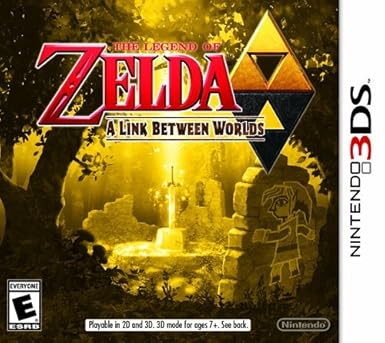
My friend mentioned that whenever a new Zelda game comes out, a lot of people crap on the previous one. This is mostly true. I don't think it will happen with A Link Between Worlds though, because it seems like almost everyone who has played it describes it "the best Zelda in X years", where X is the number of years since the last Zelda game they truly loved. In my case, A Link Between Worlds is my favorite Zelda game since Majora's Mask, and since that's my favorite video game ever... yeah, I like A Link Between Worlds a lot. It takes the basic framework and world design from A Link to the Past, a fan favorite, and modernizes it with the best controls the series has ever had (yes, ever (except for the 3DS' terrible form factor)) and many updates to the functionality. It's also the least restrictive Zelda game in a long time, letting you wander around the whole world after the relatively brief tutorial and letting you tackle most dungeons in whichever order you desire by letting you rent or buy whatever items you need to get through them whenever you want. The dungeon design is fantastic, the boss fights are a blast, and the ability to flatten and move along walls really opens up the possibilities for getting around. In short, it understands what people love about Zelda better than any game in over a decade, and just lets them have that. A bit pandering maybe, but it works.
1. The Last of Us (PS3)
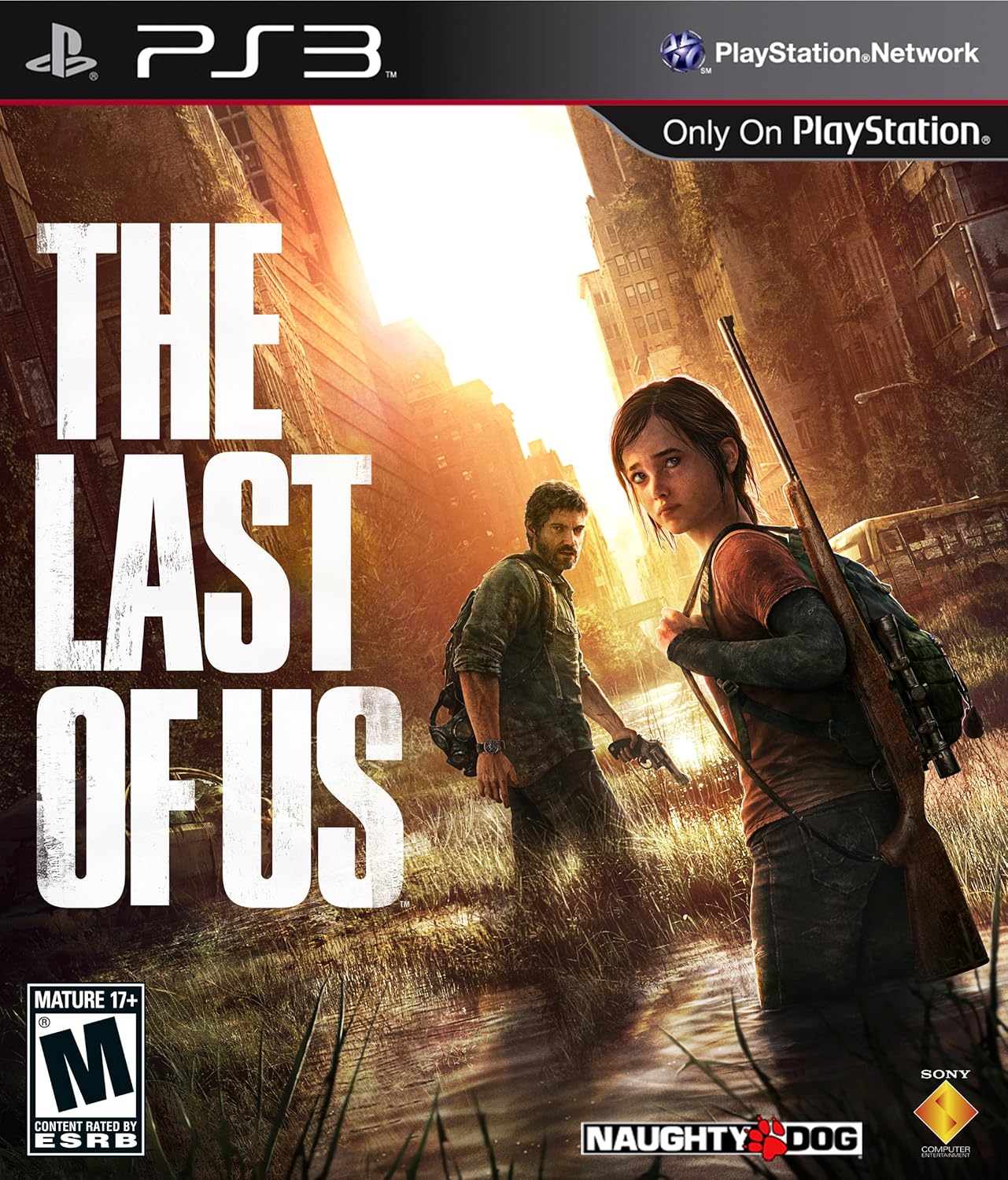
There are two types of The Last of Us players: those who love the gameplay and story, and those who only love the story. I'm one of the former. I have a hunch that people who didn't like the gameplay were going about it the wrong way. I don't usually like using the "you're playing it wrong" argument, but with The Last of Us, it's easy to approach it from too much of an action or stealth direction, when your best bet is to blend the two. It's a game where you don't want to be mobbed by enemies, and the best way to do that is to both avoid being detected and actively take out any enemies you can without them noticing in order to thin out their numbers. You have a variety of tools at your disposal to get the job done, from improvised weapons you can use up close, to traps you can build and use from a distance, to guns in case you get desperate. Some people like it on easy, some people like it on hard, but if you can make the combat in The Last of Us work for you, it's among the most satisfying that you can experience. And as I mentioned, the story is awesome too. Assisted by fantastic graphics and sound design and great voice acting and mo-cap work by the cast, they take something as tired as yet another zombie apocalypse and wring it for all it's worth emotionally. It has all the weight and power of The Walking Dead while still having a robust action/adventure game behind it. It's just one of the best games to come out in years.
Delayed Entry
This is the best game that wasn't released in 2013 but I didn't play until then.
Super Mario Galaxy (Wii)
With all due respect to Super Mario 3D World, Super Mario Galaxy is the real deal. Despite being six years old when I played it, it was amazing how good it was. It takes what I loved about Super Mario 64, improves on its faults, and brings it way into the future with its take on how crazy a platforming game can act while still being comprehensible. While some areas resemble a typical Mario environment, it really shines when it takes the "galaxy" part literally and has you hopping between interstellar objects floating in space with their own gravity. It's incredibly disorienting when you first start running around on what appears to be the ceiling, but once your mind reorients, you'll find yourself doing all sorts of crazy things and not thinking twice about it. As a bonus, playing it after watching Gravity gave me multiple opportunities to freak myself out by nearly floating away into the endless void. The motion controls are merely competent and I wish I could have played it in something higher than 480p, but I can't blame the game for Nintendo's issues with hardware.
Sunday, August 21, 2011
Tomb Raider: Underworld
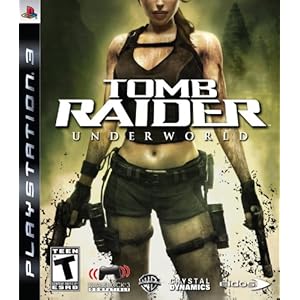
I'm not sure how I would have reacted to this game when it came out a few years ago. The game would have still been extremely glitchy, but it's hard to say if it would have been as unacceptable then as it is now. Were the two Crystal Dynamics Tomb Raider games from the previous generation as buggy as this? They were still fresh in my mind back then. They probably couldn't be, because the fact that they were actually totally playable is what saved the series from getting completely buried. Bringing the series to a new, higher standard of hardware should have resulted in a more polished experience, not severely less. The graphics are technically superior and the grappling physics are better, but that's about the only improvement they made on the last couple games. Lara constantly clips through pieces of the environment and fails to leap in the direction you're pointing with alarming frequency. The camera is easily the worst I've had to use in a game this generation, and the game's concept of falling damage is amazingly silly.
It's like they're going for a certain level of realism with the series (physically, anyway, because the plot is filled with winged demon ladies and magic spells), and Lara can't fall even 20 feet without taking damage and probably dying, bouncing off the floor in hilarious fashion. They're not consistent enough to make this work, though. Lara can get shot multiple times and feel fine after using a health item, but she can't safely drop from distances other game characters can without a hitch? While clinging to a wall, she can leap straight up and clear a distance greater than her own height. No human alive can do this, yet she gets killed when she drops a couple stories. The combat isn't any good, either. It's a great example of the kind of combat that exists only because the developers thought they needed to break up the platforming and puzzles once in a while. Lara's pretty acrobatic, but there's no real thrill to the act of fighting. You stay away from enemies and hold down the fire button until they're dead. They didn't even bother making any boss fights like they did in previous games. When the best feature of your combat is a meter which when fully charged allows you to make it go by faster, maybe you don't need combat at all.
Despite these issues, and they are big ones, I don't hate the game. It takes you to some nice looking locations and let's you explore complicated temples filled with elaborate but logical puzzles. Climbing and jumping is still innately pleasurable, even if Lara can't jump straight and seems to have terrible balance for someone so athletic. The plot has a mildly intriguing crazier-Indiana Jones thing going on. It delves deeply into Norse mythology and how it has impacted religion throughout history, which is kind of neat if a bit arbitrary (Okay, so the Mayans were totally just biting on Viking stuff they found?), and it also wraps up threads from the two previous games, forming a sort of trilogy. I don't know if they're rebooting the series again now just because they want to or because of some reaction to this game, but I guess I'd believe either one. My experience with the game was much more up and down than it was with the first two, mostly because of the technical issues. But it does naturally extend from them, and adhere to a lot of the same ideas that made the franchise interesting in the first place, and influence modern AAA games like the Uncharted series. Of course, Tomb Raider was itself influenced by other previous games, but that's the incestuous nature of game design.
The game does have two downloadable episodes that continue the plot, which I have no access to due to them being exclusive to the Xbox 360. Hiding the ending of the game behind additional paid content and making paid content exclusive to a subset of your user base both seem like bad ideas to me, and combining the two is even worse. I watched video of the episodes online though, and I have to say I don't mind the results here terribly. They do take place after the ending of the game, but they feel more like epilogues than the real ending of the game. The ending that was already there feels properly climactic, and these episodes are just a bit more content to finally put a couple threads to rest. It still seems poorly thought out, but I don't really feel cheated. If this is the last we see of this continuity (I don't really know where Lara Croft and the Guardian of Light fits in), then it ends on a fine note, if a bit of an odd and clunky one.
Sunday, September 14, 2008
Tomb Raider: Anniversary

I might have appreciated it more if I had played the original, but Tomb Raider: Anniversary is a solid remake that updates the game to a more modern style with grace. It plays very similarly to Tomb Raider: Legend, the first game in the series by Crystal Dynamics after they took it over, with the same combat and platforming mechanics with a few updates, but the focus is much different. Legend felt a lot like an action movie, with car chases, large gun fights, with lots of characters and cinematic moments. Traversing around tombs and solving puzzles was part of it, but it didn't seem like the focus. Anniversary is very much about this, almost exclusively. There's not much opportunity for one liners or big explosions when most of the game is spent alone in remote locations. Combat is rare, and is almost always against wild animals that have somehow survived long enough in these deserted temples to attack you. They don't make for very interesting opponents, but the dodging and counter attack system makes it a little more fun. The very few times you're confronted with humans, Lara does everything she can to avoid murder, and is clearly against the idea of it, which is weird when she just mows 'em all down in Legend. I guess time changes everyone.
Anyway, the meat of the game is the environment, whether it's testing your wits or your reflexes, and for the most part, it really shines. It combines the best aspects of a lot of different action/adventure games, and has some of the most elaborate and interesting setups I've seen in a game like this. The problem is that the execution isn't always the greatest. There are two things that hurt it, the controls and the camera. The controls work for the most part, and are certainly better than what the series used to be, but they're not precise enough that every mistake seems like it's your fault, and that makes it a problem. Sometimes things work, and sometimes they don't, and when them not working forces you to start over, it can quickly get annoying. The camera seems worse than Legend, as it doesn't show you what you want to look at as much as you'd want, which compounds the control problem. Both problems get worse as the challenge ramps up, and every single mistake results in instant death, or at least having to do a long sequence of jumping and climbing over again. They could have gotten really creative later on and made you really think about what you had to do, but instead they elected to make you race through gauntlets and threw some lava on the floor. Legend had the same controls, but it wasn't as frustrating because it didn't demand as much from you. I still quite enjoyed the game, but not as much. It looks and sounds nice enough for a PS2 game in this age, and the story is a reasonably entertaining Indiana Jones-esque tale. I wonder how well they'll balance the puzzles in action in the new Tomb Raider coming out in November.
Saturday, September 29, 2007
Tomb Raider: Legend
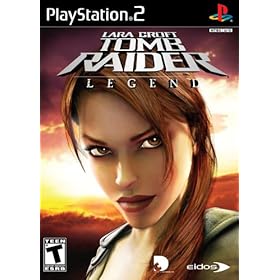
I played a few demos in the past, but I never really sat down and played a Tomb Raider game before because I didn't have a PS1 and the first one on PS2 was terrible. But I got a demo disc a while ago with this on it, and found I actually enjoyed it quite a bit. It had some nice Prince of Persia-style platforming and puzzle solving (minus the ability to rewind and slow down time), with some decent shooting, and seemed pretty cool. I didn't end up getting the whole game until recently, but it was definitely worth the low price.
I'm not sure why this is, but the supernatural story of the game seems out of place to me. I know the series has always had weird stuff like dinosaurs, it just seems like the fiction they're trying to create doesn't jibe well with all the strange magical crap that happens. It's not a problem if you just decide to accept that there's an extremely ancient and powerful sword that everyone's after and enjoy it. Anyway, Lara's quest has her trekking around the globe looking for pieces to the puzzle. Some places are ancient shrines and caves, others are more modern places of business. The gameplay is largely the same regardless of setting, as you explore the environment, push some blocks, avoid traps, and shoot a lot of bad guys. There are some driving sequences and boss battles, although neither are especially compelling. There are also several button-timing sequences, which have become altogether too common in modern action games. They're really not very interesting any more, and I hope the fad dies down soon. The game's a bit short, although the fact that I didn't want it to end yet suggests the game itself was pretty fun just to play.
The game looks and sounds pretty nice, with good character models, impressive environments, and pretty solid voice acting. It makes the game a little better when the protagonist is good. In addition to being nice to look at (for a computer-generated image), Lara is intelligent and witty. The developers made a strong point of trying to make the mystery she's solving relevant to her past, and the end results are a bit amateurish but she's still a strong, sympathic character. The game shouldn't amaze anyone, but it's definitely quite an enjoyable eight hours.

































